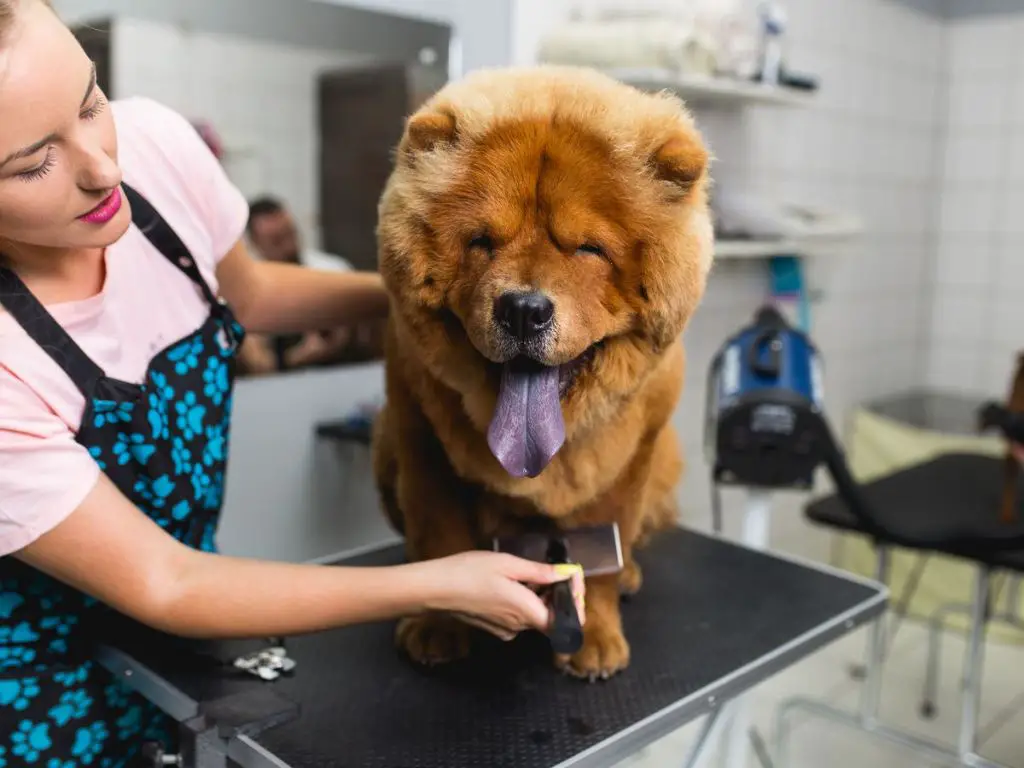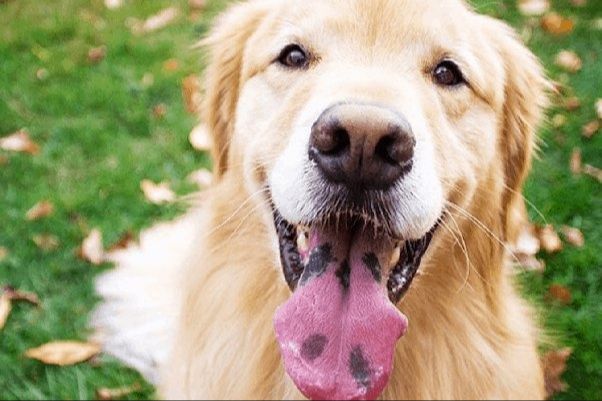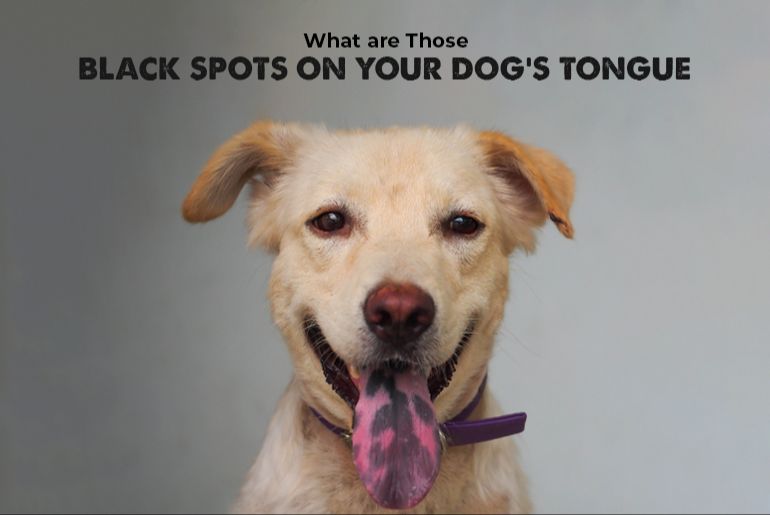Introduction
Black tongue spots in dogs are dark colored spots that appear on a dog’s tongue and other areas of the mouth like the gums, lips, and roof. They occur due to pigmentation and can vary in size and color from black to dark blue or gray. Some spots may be present at birth, while others form as a dog ages. Though any breed can develop tongue spots, they are especially common in breeds like Chow Chows, Dalmatians, Shar Peis, German Shepherds, Rottweilers, and Newfoundlands. While dark spots on a dog’s tongue are fairly common in these breeds, pet owners should be aware of any changes in size or color which may indicate an underlying health issue.
Causes
The main cause of black spots on a dog’s tongue is pigmentation. Just like certain breeds have darker “points” or spots, the black spots on a dog’s tongue are merely pigmented skin cells containing higher levels of melanin. This pigmentation is very common in breeds like Chow Chows, Chinese Shar-Peis, and Collies.
The Chow Chow in particular is known for having black spots or large black patches on their tongues. This trait can be traced back to their ancestry as an ancient Chinese breed used for herding, hunting, and guarding. The Chow Chow likely inherited its distinctive bluish-black tongue from crossing with Chinese Shar-Peis and other black-mouthed breeds.

Genetics plays a key role as well. The gene that causes heavy pigmentation in the mouth and on the tongue is dominant. Therefore, mixed breed dogs that have Chow Chow or other black-mouthed dogs in their ancestry may also exhibit tongue spots. The location and number of spots is determined by heredity.
Sources:
https://www.akc.org/expert-advice/health/black-spots-on-a-dogs-tongue/
https://canidae.com/blog/why-do-some-dogs-have-black-spots-on-their-tongue
Appearance
The appearance of black spots on a dog’s tongue can vary in coloration, pattern, and location. Some key characteristics include:
Coloration
The spots are black or very dark brown in color. They stand out distinctly against the pink surface of the tongue.
Pattern
Spots may appear as small dots, larger splotches, speckles, patches, or a solid concentration of pigment. There can be just a few spots or many spread across the tongue.https://www.akc.org/expert-advice/health/black-spots-on-a-dogs-tongue/
Location on Tongue
Spots frequently appear on the top surface of the tongue near the tip, but may also be present on the sides, underside, or back of the tongue. Some breeds have pigment extending across much of the tongue.
Health Implications

According to Brian Evans, DVM (https://www.rd.com/list/black-spot-on-dog-tongue/), black spots on a dog’s tongue are typically harmless and not linked to any health problems. The spots are simply pigmentation in the tongue tissue and do not cause the dog pain or discomfort.
Veterinarians emphasize that black tongue spots are benign and have no effect on a dog’s health or behavior (https://www.dailypaws.com/dogs-puppies/health-care/dog-conditions/black-spot-on-dog-tongue). The spots are not indicative of any nutritional deficiency or underlying medical issue. As long as the spots do not rapidly change size or appearance, there is no cause for concern.
Overall, the consensus is that black tongue spots are a normal variation in dogs and not harmful. Owners can rest assured knowing the spots are simply pigmentation and nothing to worry about health-wise. Regular vet checkups are still recommended to monitor the dog’s overall health.
Diagnosis
Diagnosing black tongue spots in dogs is relatively straightforward for veterinarians. The main diagnostic method is a simple visual examination of the dog’s tongue and mouth. Since tongue spots are cosmetic and do not impact health, extensive testing is not necessary in most cases.
If the breed of the dog is unknown, genetic testing may be recommended by the veterinarian. There are specific breeds like Chow Chows and Chinese Shar-Peis that are predisposed to developing black spots on their tongues. A veterinarian can take a simple DNA sample from the dog and have it tested by a laboratory. The results can indicate if the dog has genetic markers consistent with these breeds. This can help explain the origin of the black tongue spots.
According to the AKC, “Black spots are simply pigmentation. Just like certain breeds have darker ‘points’ or spots, spots on a dog’s tongue are merely pigmented skin cells.” Visual examination alone by an experienced veterinarian is usually enough to diagnose normal black tongue spotting that is not indicative of any health issues.

Sources:
Treatment
Black tongue spots generally do not require any treatment, as they are considered normal pigmentation in dogs. The spots themselves are harmless and do not cause the dog discomfort or health issues (Source).
Since the tongue spots are not indicative of any underlying illness, there is no need for medical intervention. The spots may appear darker or larger as the dog ages, but this is still considered normal pigmentation (Source).
While black spots on the tongue generally do not require treatment, it’s recommended to have your veterinarian examine your dog if the spots are new or rapidly changing. This is just to rule out any other potential causes like melanoma. But in most cases, the spots can be left alone.
Grooming and Care
Dogs with black tongue spots do not require any special grooming or care compared to other dogs. The spots themselves are harmless pigmentation in the tongue and do not impact grooming needs.
As with any dog, regular brushing and dental care is important. Brushing helps remove loose hair and prevents matting. It also helps distribute skin oils for a healthy coat and skin.
Daily tooth brushing is ideal for good dental health. If that is not possible, providing dental chews and treats can help reduce tartar buildup. Annual veterinary cleanings may be needed for dogs prone to plaque and tartar.
The black tongue spots themselves do not need any special grooming. Simply follow a regular routine with brushing, dental care, nail trims, and bathing as needed.
Living with a Dog with Black Tongue Spots
Black tongue spots in dogs are a harmless pigmentation that does not require any treatment or special care. According to veterinarians, the spots simply represent pigmented cells on the tongue and are not a health concern (1). However, it is still important to monitor your dog’s tongue spots for any changes in size, shape, or color, as this could indicate an underlying issue.

In most cases, black tongue spots will remain unchanged throughout a dog’s life. While the spots do not require treatment, you should still maintain good oral hygiene practices like regular teeth brushing. Check your dog’s tongue each time you brush its teeth to ensure the spots look normal. Contact your veterinarian if you notice the spots getting larger, changing color, or if new spots suddenly appear (2).
Other than monitoring the spots at home, having a dog with black tongue spots will not impact your daily life. The spots are simply a cosmetic trait and do not interfere with eating, playing, or other normal dog behaviors. Dogs with tongue spots can live long, healthy lives just like any other dogs. Simply provide your spotted tongue dog with proper nutrition, exercise, love, and routine veterinary care to give it its best life.
(1) https://www.akc.org/expert-advice/health/black-spots-on-a-dogs-tongue/
(2) https://www.dailypaws.com/dogs-puppies/health-care/dog-conditions/black-spot-on-dog-tongue
Breeding Dogs with Black Tongue Spots
Black tongue spots can be passed down genetically from parent to puppy in some breeds like Chow Chows and Shar Peis. Responsible breeders who want to breed dogs with tongue spots should carefully select sire and dam dogs that both carry the trait to increase the chances of passing it down. It’s important for breeders to understand the health implications of tongue spots and only breed dogs that are screened for genetic issues to avoid perpetuating problems.
According to the AKC, responsible breeders should “make every effort to advance and preserve quality in their breed” through careful selection and health testing (source: https://www.akc.org/experts/breeding-basics/responsibilities-of-a-dog-breeder/). Breeding dogs with black tongue spots is acceptable if done carefully for preservation of the breed, but dogs should ultimately be bred for health and temperament rather than cosmetic traits.
Summary
In summary, black spots on a dog’s tongue are harmless and normal. They are caused by hyperpigmentation and concentration of melanin pigment cells. Certain breeds like chows and shar-peis are prone to having black spots on their tongues. The spots can vary in number and size, but do not indicate any health issues. Diagnosis is simply through visual examination. No treatment is necessary as the spots are purely cosmetic.
Black tongue spots do not affect a dog’s health or quality of life in any way. They require no special care or grooming. Dogs with black spots can be bred, and they often pass down the trait to their puppies. While some owners are concerned when they first notice black spots, they are a natural genetic trait for many dogs. As long as your dog is acting normal otherwise, there is no need to worry about black pigmentation on your dog’s tongue.
The main takeaways are that black tongue spots are harmless pigmentation, no treatment is required, and they do not negatively impact a dog’s health. With the right information, black tongue spots are nothing for dog owners to worry about.
